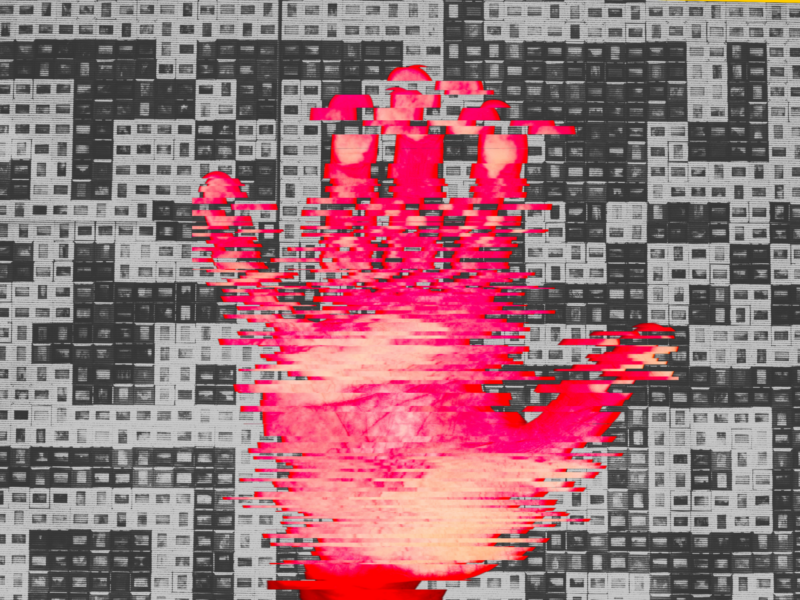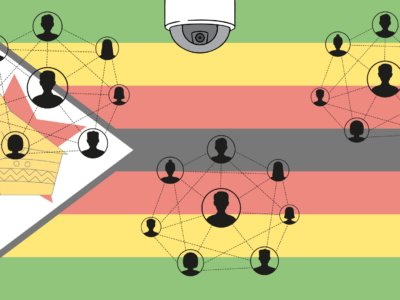
The Unfreedom Monitor is a project to analyze, document, and report on the growing use of digital communications technology to advance authoritarian governance around the world.
Authoritarian and dictatorial regimes have long had a complicated relationship with media and communications technologies, using them to advance their own goals and propaganda. At the same time, they restrict access for some to technology and information, helping them to shape and warp reality, conceal abuses, and maintain power. As more and more people use the internet and other technologies these dynamics only become stronger. This means that, despite its goals for good, the internet is sometimes used by authoritarian-minded governments as a tool for deception, propaganda and control.
In 2010, Global Voices’ co-founder Rebecca MacKinnon coined the term “networked authoritarianism” to define how China manipulates the internet to maintain power. The approach allows for limited debate around some issues but controls the platforms and frames the narratives up for discussion. Technology facilitates surveillance and social controls, and information, discussion, and activism with the potential to threaten power is forbidden.
Global Voices has been tracking and documenting this phenomenon in many countries through our Advox project, since 2007. We have noticed a few trends. Over time, threats to online expression transform from threats to individuals to threats to systems, affecting entire populations. Internet controls and mass surveillance become an accepted part of governing. States have become sophisticated in their ability to detect, repress and target organizing, expression and activism. Many states are combining targeted denial of information services with powerful surveillance and the ability to “flood the zone” with false and misleading information, using automated technologies and networks of supporters. These practices and more come together to strengthen existing authoritarian powers and threaten the stability of long-standing and fledgling democracies.
Today, what has become known as digital authoritarianism is evident in all kinds of governments. The internet is dominated by advertising technology that tracks and segments users for commercial gain. Governments, states, and political parties, often in collaboration with corporations, harness this surveillance power, and a future with more advanced machine learning, facial recognition, and artificial intelligence for “predictive” analysis suggests that state capabilities for control will likely increase. Combine this with the ubiquitous CCTV capture, the face that we carry our communications devices everywhere, and the normalization of the idea that your devices should listen to you, and you end up with pervasive surveillance.
These are the reasons we created The Unfreedom Monitor. We want to understand what motivates, shapes, and influences digital authoritarianism around the world, no matter the style of government or political system. Starting with 11 pilot countries, we are seeking to develop a method for naming digital authoritarianism, so we can help people of good conscience tame it.
The Unfreedom Monitor
Authoritarian regimes have long had a complicated relationship with media and communications technologies. The Unfreedom Monitor is a Global Voices Advox research initiative examining the growing phenomenon of networked or digital authoritarianism.
Download a PDF of the briefing document.
Access the public database.
Stories about Unfreedom Monitor
The quiet weeding out of Hong Kong’s media landscape
In 20 years, Hong Kong has dropped from 18th to 148th in the World Press Freedom Ranking, which translates into less critical coverage, less investigative reporting, and a less appealing work environment for talented journalists.
Unfreedom Monitor Report: Cameroon
Advox research into digital authoritarianism in Cameroon is now in a report. Read an excerpt and download the full pdf.
Social media censorship and information manipulation after Sadyr Zhaparov's rise in Kyrgyzstan
The Kyrgyz authorities are also using the narrative of “foreign interests” to adopt a law on ‘foreign agents’ largely inspired by the Russian model.
Unfreedom Monitor Report: Hong Kong
Advox research into digital authoritarianism in Hong Kong is now in a report. Read an excerpt and download the full pdf.
The consequences of online discrimination and authoritarianism for minorities
In most countries, three-quarters or more of the targets of online hate speech are members of minority groups, with women being disproportionately targeted.
What is red-tagging and why it is dangerous in the Philippines?
With the enactment of the Anti-Terrorism Act in 2020, red-tagged individuals and groups face the risks of being subjected to surveillance, freezing of assets, and restriction of movement, among others.
The normalization of Chinese-style censorship in Hong Kong
While the Hong Kong's National Security Law primarily targeted politicians of the pro-democratic opposition, activists, and critical media outlets, it soon also engulfed Hong Kong’s arts and culture scene.
How internet shutdowns in Myanmar have been endangering lives and affecting humanitarian work since the coup
The internet blackout has made it difficult for locals to both send and receive information on the conditions in the region, report human rights abuses committed by the military regime, or raise funds for humanitarian business.
The Myanmar junta’s war against Facebook
Social media platforms have an oversized influence on political events such as elections, and they have a responsibility to advance democracy.
Zimbabwe’s information war on digital platforms threatens free expression
"Digital technology has played a huge role in spreading propaganda and disinformation because these offer a huge platform, which appeals to a large number of people."
Venezuelan authorities spied on 20% of major telecom's clients
A major telecommunications company released a report giving evidence of privacy abuse on behalf of Maduro's government.
Online gender-based violence: A tool of digital authoritarianism in India
Women journalists in India have been trolled, received death and rape threats, found themselves objectified on apps, and are allegedly targeted by spyware like Pegasus.
Charity treason: The legal practice of persecuting Russians who donate to Ukraine
Despite the authorities agreeing that sponsoring the Ukrainian army constitutes treason, in a year, there has not been a single reported criminal case instigated for such donations.
How military supporters are using Telegram channels to suppress dissent in Myanmar
Pro-military people are urging the military authorities to take action against those who are pro-democracy, calling for detention, imprisonment, property seizure, revoking citizenship and travel documents — even the execution of political prisoners and rebels.
President Bukele harasses independent journalists on Twitter in El Salvador
Bukele's presidency has attacked and discredited independent journalists who expose corruption in his government, putting them at risk of harassment and violence.
Infrastructural content moderation: the case of Mariupol
In addition to the obvious humanitarian consequences that internet shutdowns in a war zone bring, infrastructural content moderation is a potent and dangerous approach to spreading disinformation.
How Zimbabwe is building a Big Brother surveillance state
Citizens' belief that the infringement of human and digital rights does not concern them has created fertile ground for the emergence of pervasive surveillance in Zimbabwe.
New stringent legislation threatens data privacy and surveillance protection in Tanzania
A lack of data protection and privacy legislation leaves room for abuse in Tanzania.
Governments are still free to use the Pegasus software without human rights safeguards in place
There is an urgent need to regulate the global trade in surveillance technology with the inclusion of human rights safeguards.
A fact-check of India’s socio-political undercurrents: the case of Zubair
The reactions and subtle usage of language and labelling by and of different actors in the Indian ecosystem symbolise the undercurrents in Indian society.






















